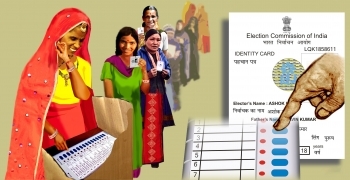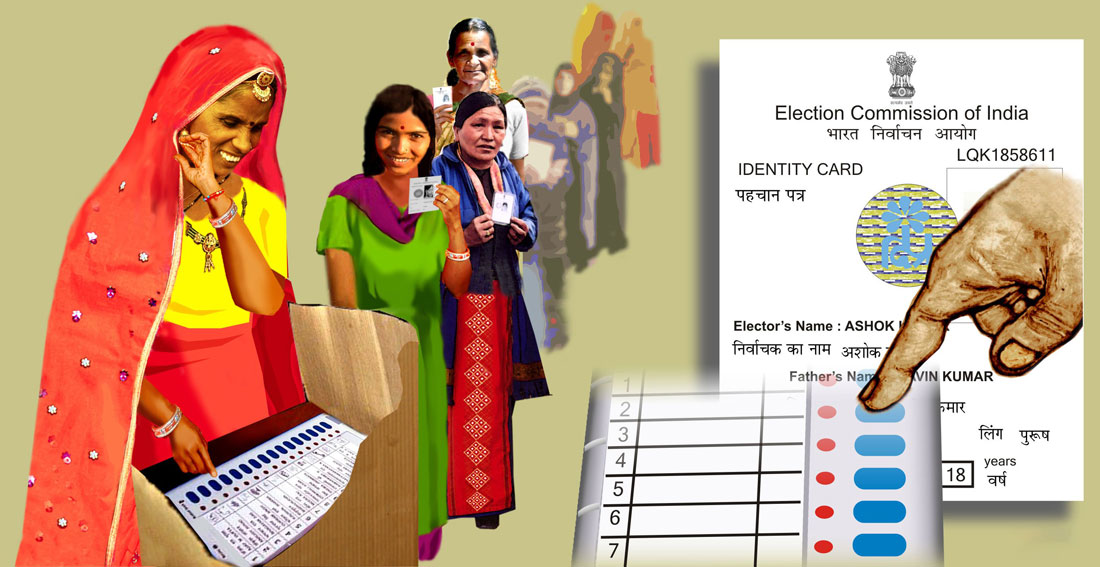
 Pachu Menon
Pachu Menon

Elections in India, over the years, have witnessed a slew of emerging trends which have a big say in the manner in which people choose their representatives.
Of course, in Goa the drift has been more towards ‘party-hopping’ this time around and true to the evident gusto visible, aspiring politicians and leaders have kept the punters guesstimating with their preposterous games played to near perfection.
For ages now, India has thrived on issue-based politics to chart its own political course. Yet at times such have been the influence of unexpected events on the political course of the country that exploiting the impact of these dramatic incidents on the public psyche, political parties have either consolidated their positions or managed to spring back into reckoning after having spent quite a number of years in the wilderness.
It is well-known that the ‘sympathy’ factor is capable of tilting the scales in favour of a particular political party during elections. In fact, it has had such a resounding effect over the years on government formations that political dispensations never cease to search for the element of compassion in issues that confront them from time to time.
The news that the Congress party fielded the Unnao rape victim’s mother from the Unnao Assembly seat in Uttar Pradesh in the upcoming polls lends further credence to this fact.
It is a fact that parties, both at the Centre and the states, have been exploiting gruesome assassinations and ‘unfortunate’ deaths of their ‘beloved’ leaders to boost their vote-tally in elections.
There have been umpteen instances in the country where parties cashing in on the sympathy votes have romped home to form governments.
Many of the aspirants who make it to the House serve to add numbers to the party tally but remain mute spectators to the proceedings all through the term; hence it wouldn’t be wrong to believe that the sympathy wave generally brings along with it disadvantages for their ‘compassionate considerations’ during elections.
If an electoral district doesn’t want itself to be weighed down by such meaningless representation, factors like sympathy and such other emotions will have to be given the go by during elections.
As it is, the pestilence of the ‘family raj’ syndrome has infested the Indian political system to such an extent that the country does not have much of a choice but to accept the fact that ‘dynasty’ politics is here to stay.
The Nehru-Gandhi family may be deemed to be the pioneer of dynastic politics in the country but with many other national and regional parties practising the same, critical appraisals of this predominant trend in Indian politics could well be done away with.
With quite a few prominent leaders managing to secure party nominations for their spouses in this election, a proliferation of family fiefdoms which are already dominating politics in this tiny coastal state of Goa is bound to give a new direction to the power-plays that will come into force eventually.
On the other hand, as a trend that is ominous, State Assemblies, not to speak of the Parliament, are packed with members who consider it a pride to have their criminal antecedents preceding their ‘legislative statuses’. Is this what democracy all about?
Envisaging a scenario where criminals are empowered to become law-makers through as solemn a process as the free-and-fair elections that the system takes pride in would have been extremely difficult a few decades back in this country.
However, a report by the Association for Democratic Reforms explicitly states that criminality in Goan politics is increasing as candidates with criminal cases registered against them are emerging as winners in successive Assembly elections. This is precisely the same story in all the other States, and at the Centre as well.
The crux of the matter is that for every political dispensation it is the ‘winnability’ criterion of their candidate that matters the most during elections. The money and muscle power at their disposal is a sure-shot formula for the success of the criminally tainted.
As citizens of a country which boasts of leaders of stature and highly talented statesmen renowned for their political genius, it becomes extremely impalpable to have the masses being represented in the higher seats of power by people of questionable character.
Unfortunately, this trend is very much in vogue and continues unhindered.
Conversely, with political parties merely paying lip-service to problems faced by the locals, personal rapport with voters, approach to development and environmental issues have never featured as topics of concern in any election campaign.
But, considering that legislators are law-makers, nurturing hopes of people having a sound knowledge of law coming forward to contest elections and assume ‘legislative responsibilities’ should not invite scorn either!
Not that lawyers -- and good ones at that -- have not been active in Indian politics! Even Goa has had some notable entities from the field gracing the august House in the past. When it comes to their grasp of the issues at stake, addressing the problems confounding the masses will be all the more effective, and convincing.
With many more from the legal fraternity showing an inclination for a career in politics, the country could well be looking at a new trend which promises to put the brakes on the way politics has resisted every possible and viable means of change, to eventually transform into something more meaningful.